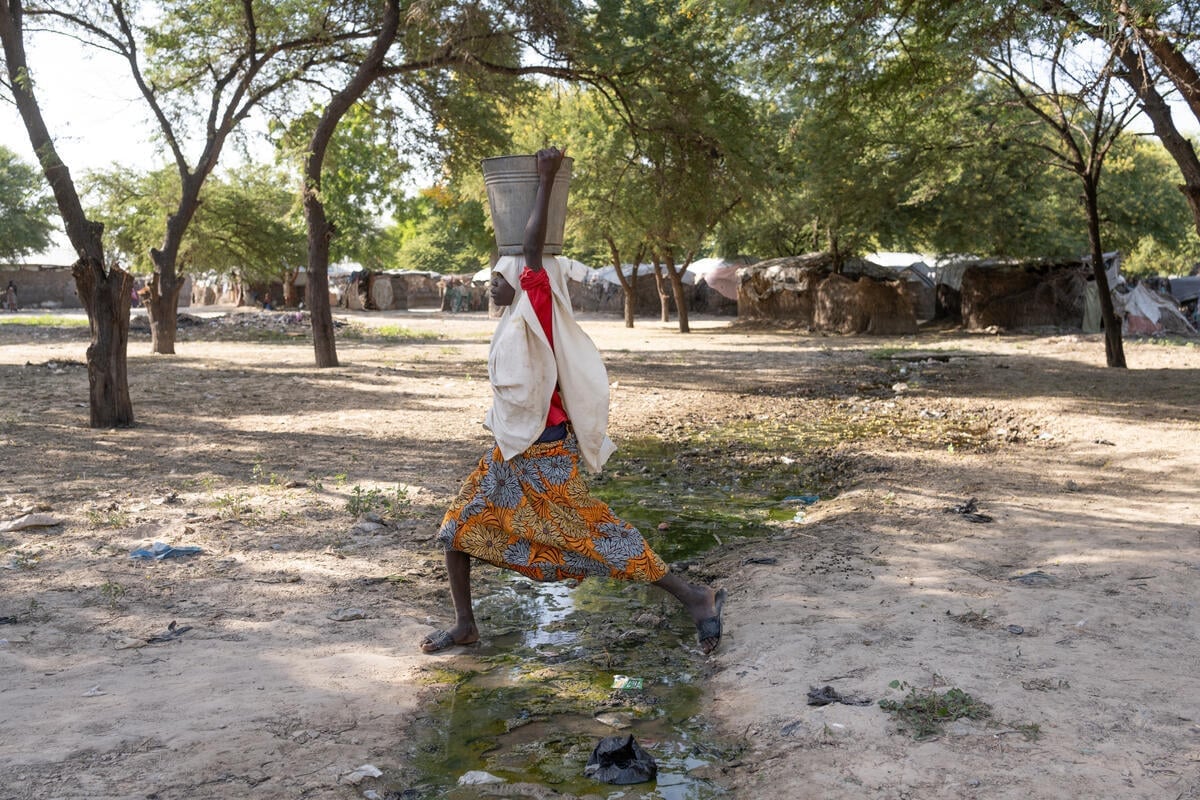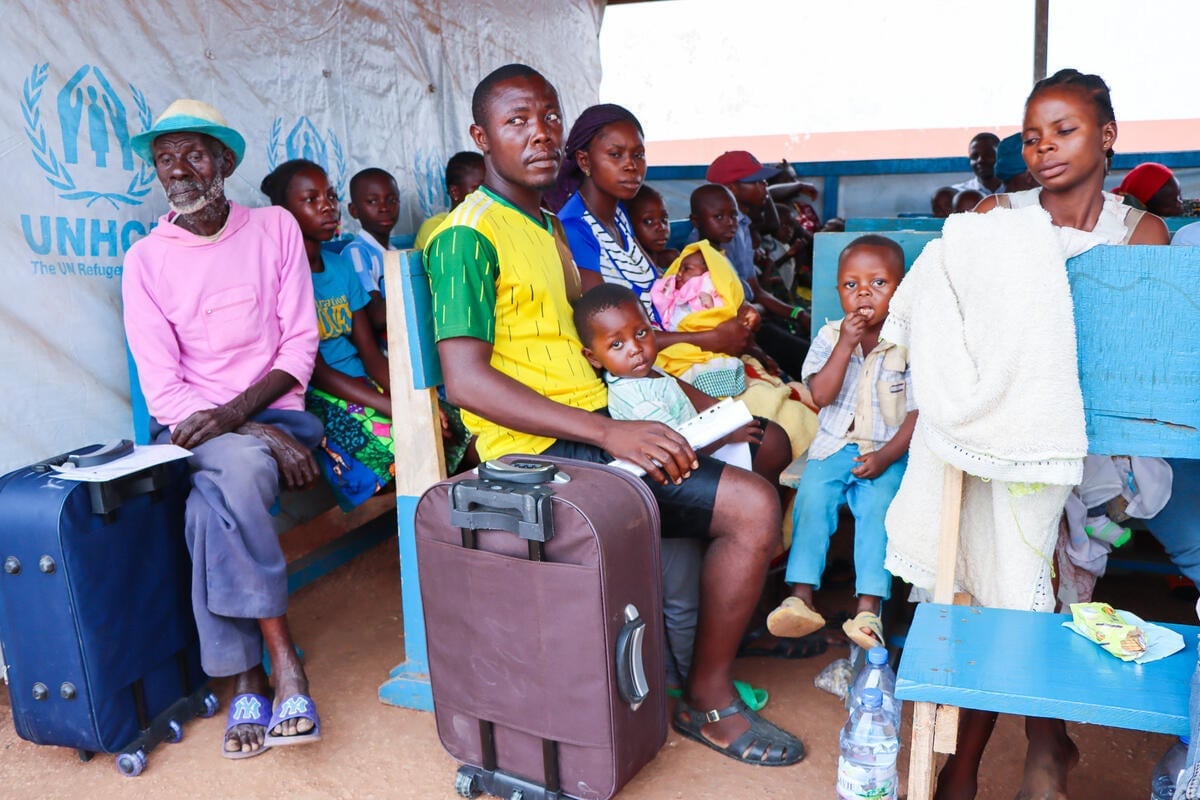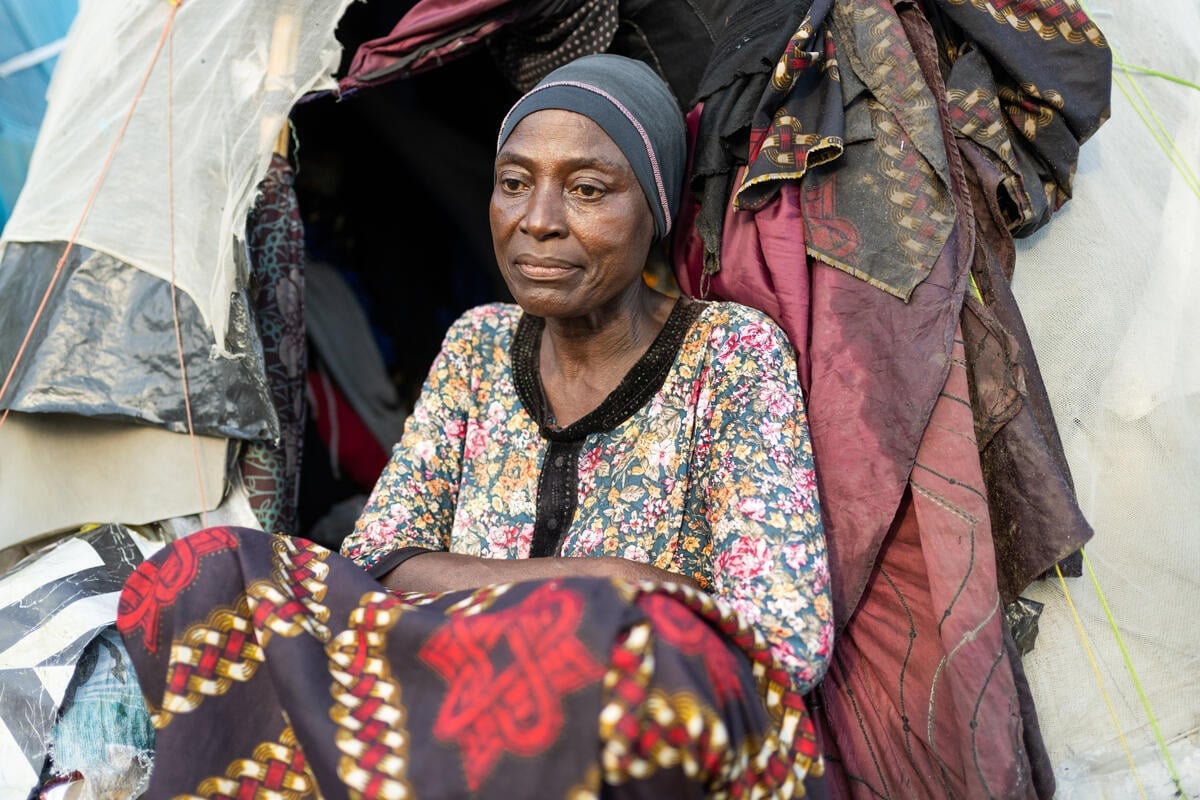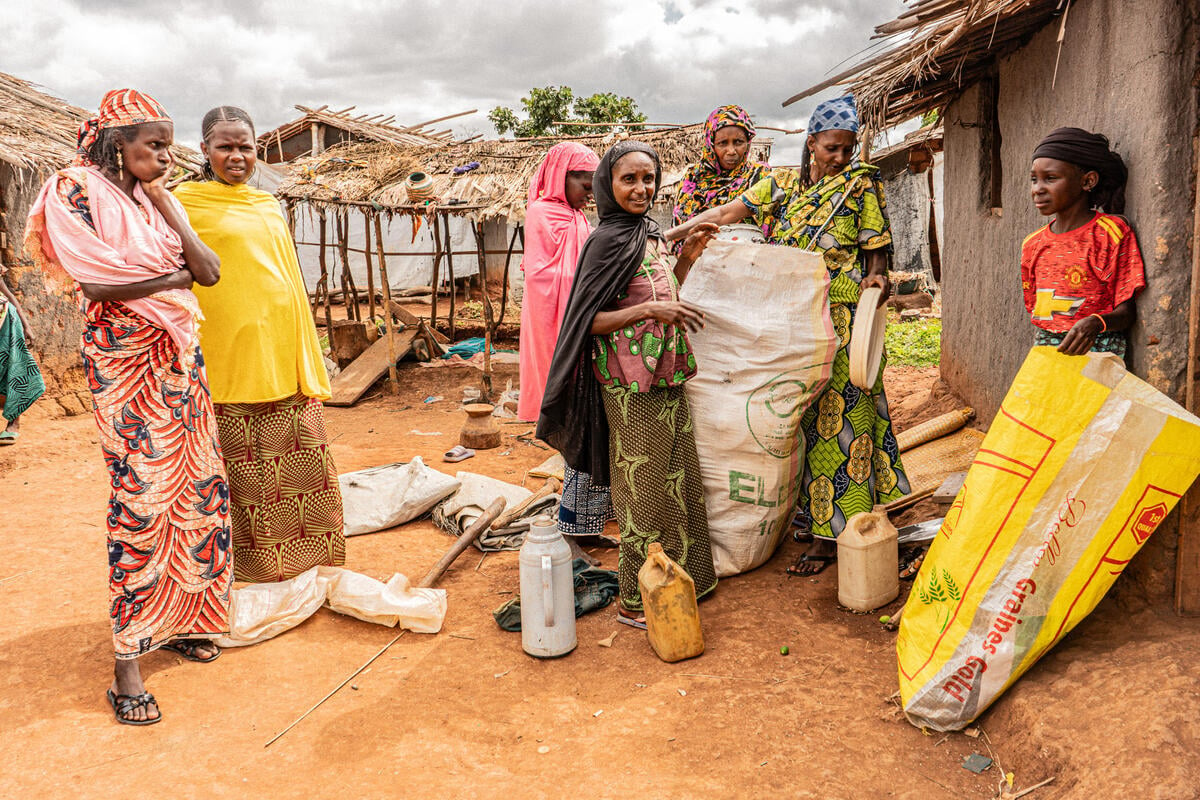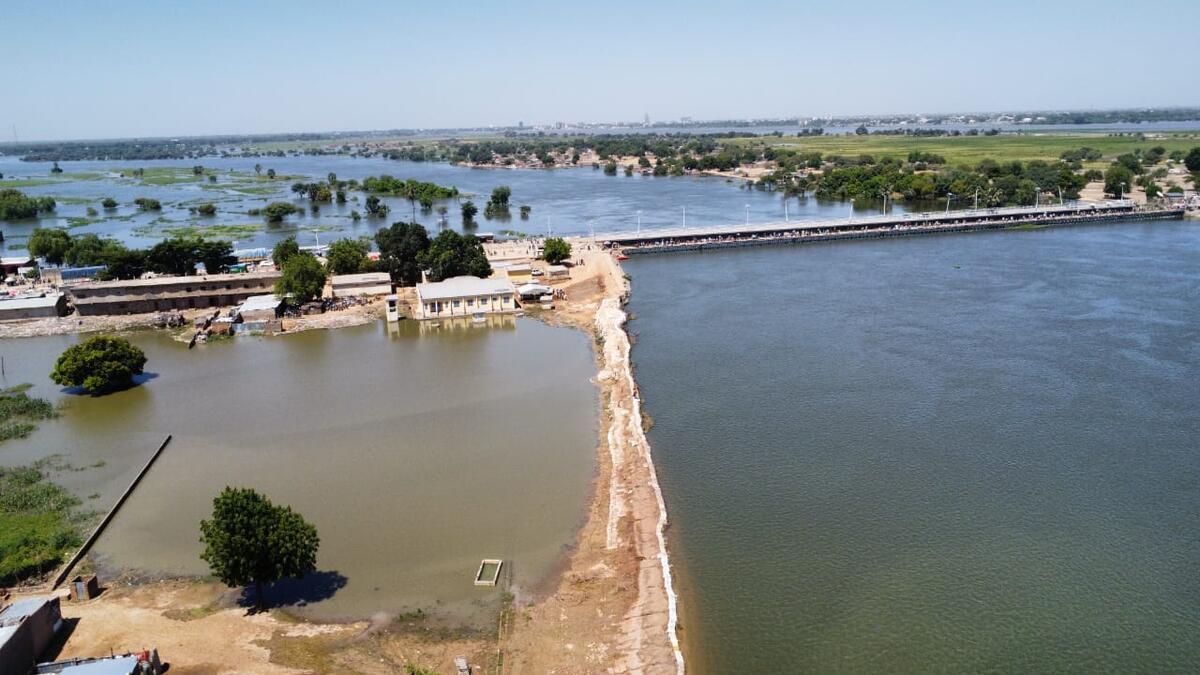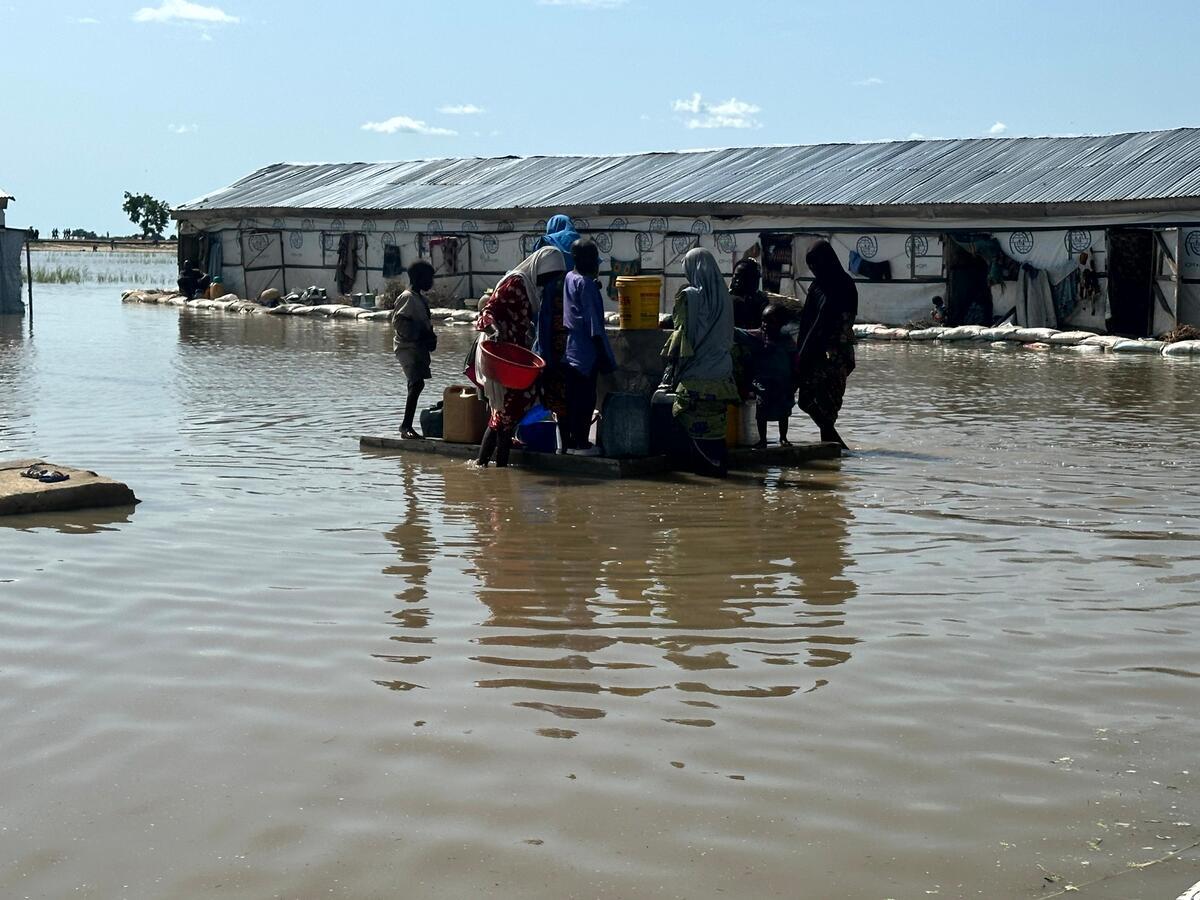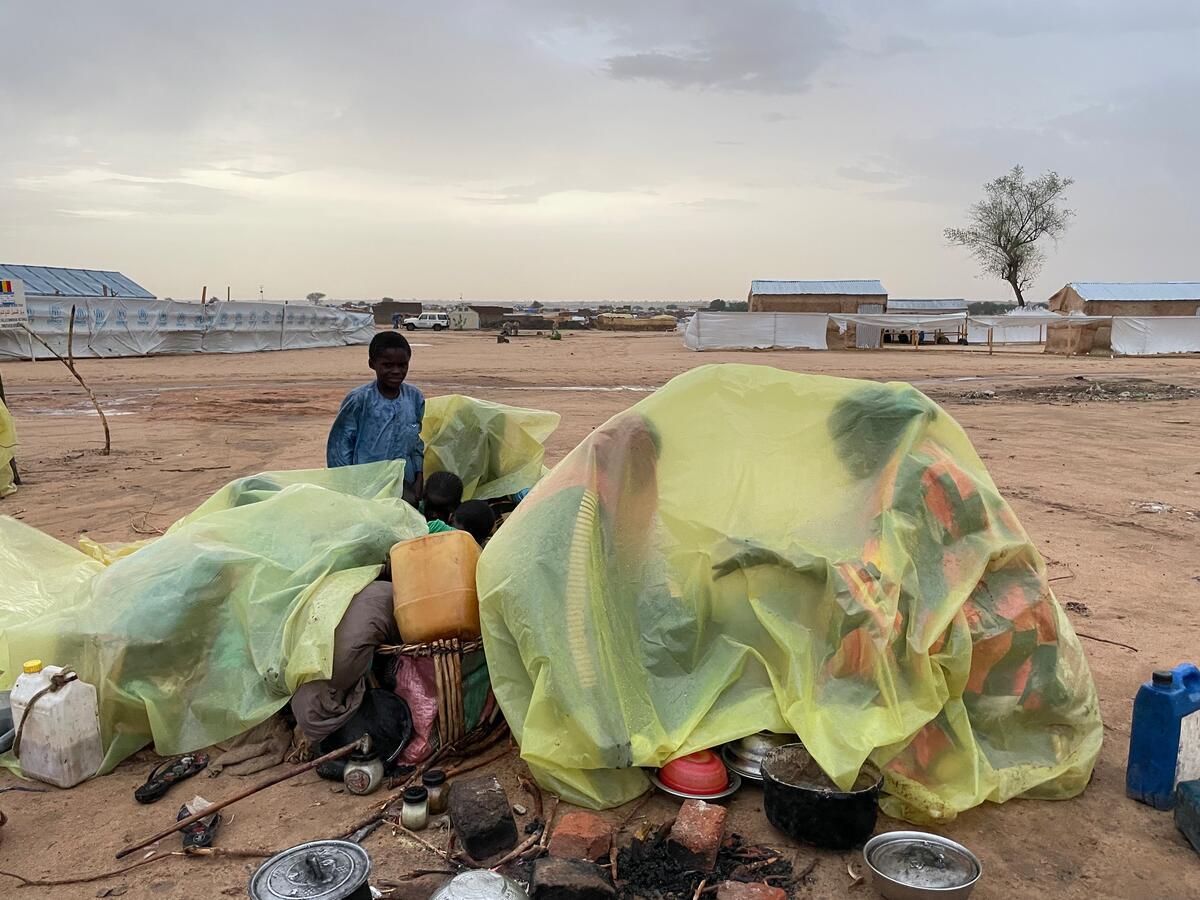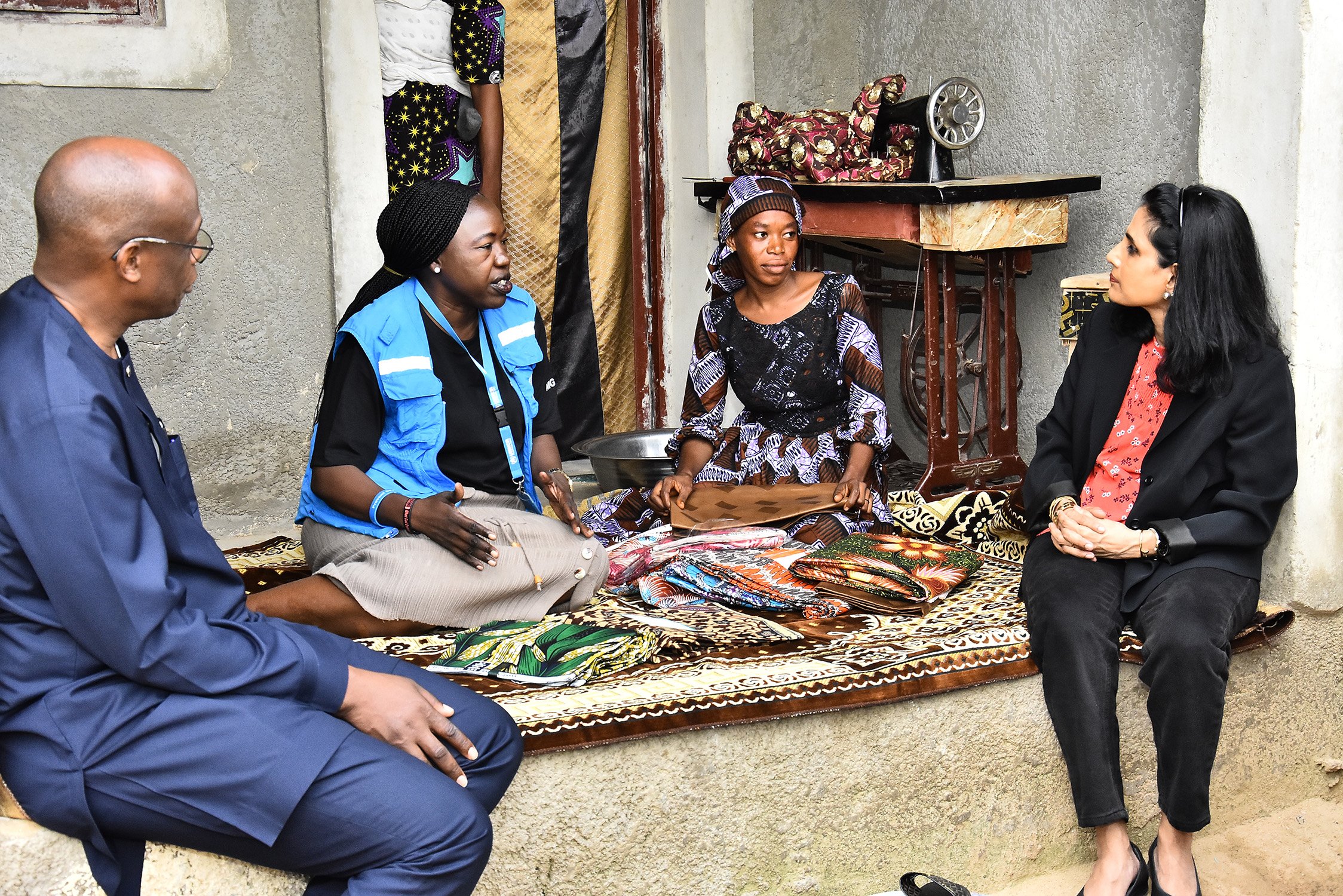Nigeria crisis: border insecurity hampers relocation of refugees to camp in Cameroon
Nigeria crisis: border insecurity hampers relocation of refugees to camp in Cameroon
UNHCR is very concerned about the growing insecurity in areas of the border between Cameroon and Nigeria, where thousands of Nigerian refugees fleeing insurgent attacks have sought refuge in the past weeks. In recent days, Nigerian insurgents have launched repeated cross-border attacks from Nigerian border towns into northern Cameroon, hindering our efforts to relocate refugees from the volatile border area to Minawao camp, located some 120 kilometres away from the border.
Last Friday, clashes between insurgents and Cameroonian military forces broke out in the village of Koubougué, on the Cameroonian side, resulting in the deaths of five civilians. Koubougué is located 4 kilometers from the border town of Fotokol, where some 1,000 refugees are awaiting transfer to Minawao Camp.
Cameroonian civilians are living in a state of terror due to frequent insurgent attacks, a situation that has been further aggravated by the fact that the insurgents from Nigeria have reportedly started targeting civilians in Cameroon. Nigerian refugees, who fled previous attacks by the insurgents in northeastern Nigeria, are asking to be moved away from the border area as quickly as possible. Recently arrived refugees say that access to Cameroon is becoming extremely difficult and dangerous as insurgents have taken control of several border towns and villages in northeastern Nigeria, including Gwoza, Bama, and Banki in Borno State, Bara in Yobe State, and Michika, Madagali and Gulak in Adamawa State. As such, refugees were forced to flee on foot through the bush and crossed the Elbeid River before entering Cameroon.
Refugees have also told our staff of being pursued by insurgents and witnessing the murders of loved ones. They say insurgents entered their villages and stole everything before burning their houses. Many refugees are traumatized, after having seen their relatives brutally murdered. Many families have also been separated after fleeing their villages, leaving many women and children extremely vulnerable.
Two weeks ago, clashes between insurgents and the Cameroonian Army in another village -Zhelevet - forced our colleagues to suspend relocation operations of about 600 refugees to Minawao.
Despite ongoing insecurity in border areas, UNHCR continues to work with local authorities to expedite the transfer of the refugees. Security permitting, further transfers will continue this week.
Currently Minawao is hosting 16,282 refugees, with the population having nearly tripled in size in the past two months. The current camp capacity is estimated at 35,000 people and further expansions are being made in order to accommodate the refugees already registered for transfer from the border and possible additional new arrivals. With support from our partners, we are urgently stepping up efforts to improve living conditions. Despite urgent efforts to meet basic needs, the camp's facilities and services are still insufficient.
While 1,371 family shelters have been made available to new arrivals, some 9,000 refugees still live in community shelters. Sufficient land has been made available by the Government of Cameroon for further expansion of the site. But construction of family shelters has been put on hold to allow local and refugee communities to finish harvesting before the land is commissioned for further construction of shelters.
Efforts have been made to increase the capacity of the educational facilities in the camp. 31 classrooms were built and 26 teachers recruited among the refugee community and local population to respond to the growing number of refugee children arriving in the camp. The current infrastructure and school equipment remain insufficient to accommodate the 8,000 refugee children now living in Minawao and classrooms are overcrowded. 56 additional classrooms are needed to ensure that all refugee children can go to school. In parallel, we have started discussions with local authorities to develop a literacy and vocational programme for adolescents who have never received a formal education.
With the sudden growth in the population in a cholera endemic area, access to water and latrines is a major concern for UNHCR and partners. In addition to the four existing boreholes on site, 10 new boreholes have been constructed, of which 5 are fully functional. The others will be put into action the coming days. In addition, UNICEF is completing the construction of another 8 boreholes. Currently, the 9 boreholes are supplying around 10 liters of water per person per day. 96 new latrines have been built, bringing the total to 165, but the number of latrines in the camp is still insufficient, with only one latrine for every 99 refugees.
Refugees are receiving food rations from WFP on a monthly basis and many refugees have also started cultivating crops on available land around the camp. Severe acute malnutrition has decreased from 3.1% in September to 2.3% now. Overall, the health situation is also stabilizing. The last cholera case was reported in September, with no new cases identified since. Additional medical capacity has been brought in, infrastructure has been expanded and referral mechanisms have been put in place.
The operational response to the Nigeria influx is coordinated by UNHCR in Yaounde at agency level and in the field by the UNHCR office in Maroua.
For more information on this topic, please contact:
- In Dakar, Hélène Caux on mobile +221 77 333 12 91
- In Cameroon, Djerassem Mbaiorem on mobile +237 70401841
- In Geneva, William Spindler on mobile +41 79 217 3011


